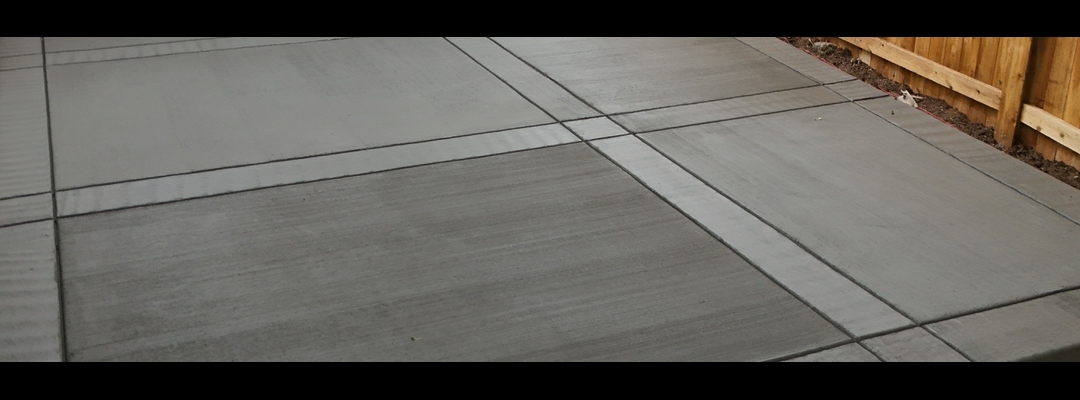Let’s be honest – your driveway probably isn’t something you think about much… until it starts falling apart.
But if you’ve ever tripped on a cracked slab, noticed a new dip forming after a snowstorm, or watched your car tires splash through a mini-lake after a rain, you’re not alone. Here in Colorado, especially around Denver, our weather throws everything at your driveway: snow, sun, hail, freeze-thaw, and clay soils that shift like mood swings.
So if you’re wondering whether it’s time to replace your driveway (or just patch it one more time), this guide’s for you.

Why This Matters for Denver Homeowners
In Colorado, our driveways take a beating.
We get wide temp swings, dry winters, sudden snow melts, and those intense UV rays at altitude. Add in soil that expands and contracts under your driveway, and over time, even the best-laid concrete can start to crack, crumble, or settle unevenly.
If you’re:
- Planning to sell and want top dollar,
- Managing a rental and need safe, durable surfaces, or
- Just sick of tripping over cracks and dodging puddles…
…a driveway replacement could be one of the smartest home improvements you make this year.
What to Consider Before You Dive In
1. Colorado Weather
We’re talking freeze-thaw cycles that literally tear concrete apart from the inside. Water seeps into tiny cracks, freezes overnight, expands, and BOOM – now that hairline crack’s a trip hazard.
Summer brings its own problems. Our high-altitude sun bakes driveways, especially asphalt, making them brittle and prone to fading.
2. Soil Movement
If you live in places like Parker, Highlands Ranch, or Castle Rock, you’ve probably heard of expansive clay soil. It swells when wet and shrinks when dry, which means your driveway might slowly tilt, sink, or crack without warning.
3. Permits and Rules
Denver and most nearby suburbs require permits for driveway work. And if you’ve got an HOA? You might need to get color, material, and design approved first.
Don’t worry – a good contractor (like us) will handle this for you.
4. Drainage
This one’s sneaky. If your driveway isn’t graded properly, water can run toward your house and cause serious foundation problems over time. It’s not just about how it looks… It’s about where the water goes when it rains or snow melts.
What to Do (Step-by-Step)
Here’s a simple path to figure out what your driveway really needs — and how to tackle it without overpaying or regretting it later.
Step 1: Take a Look
Walk outside. Check for:
- Deep cracks (wider than ¼ inch)
- Sunken or heaved sections
- Drainage issues or standing water
- Crumbling at the edges
If more than a quarter of your driveway is damaged, it’s probably time to replace, not patch.
Step 2: Pick Your Material
- Concrete: Great for most Colorado homes. Clean look, long-lasting, great ROI.
- Asphalt: Cheaper up front, but wears faster (especially with UV and salt).
- Stamped Concrete: More upscale, customizable colors and textures.
Step 3: Get a Pro (Not a Friend with a Truck)
This isn’t the project to DIY. Denver’s conditions are tricky, and poor installation = early failure. Ask about:
- Experience with Front Range soils
- What kind of base prep they use
- If they include rebar or mesh reinforcement
- Warranty terms
Step 4: Budget Like a Local
Here’s what most homeowners in the Denver area can expect:
- Concrete: $9–$16/sq ft
- Asphalt: $6–$10/sq ft
- Stamped Concrete: $14–$20/sq ft
Final cost depends on slope, old driveway removal, material choice, and decorative upgrades.
Step 5: Time It Right
Spring through early fall is ideal. Concrete needs time to cure, and freezing temps can delay or crack the surface before it sets.
Mistakes We See (That You Can Avoid)
- Waiting too long to replace — Minor issues snowball quickly in Colorado.
- Trying to patch deep cracks — Cosmetic fixes won’t stop soil movement or drainage problems.
- Skipping drainage planning — Water always wins.
- Going cheap on installation — We’ve re-done too many poorly poured driveways that were only 3 years old.
- Not sealing your new driveway — Especially important with Colorado’s intense sun and winter salts.
Wrap-Up: Worth It?
Replacing your driveway isn’t glamorous… but it’s absolutely worth it. Whether it’s for safety, style, or resale value, it’s one of the highest-ROI outdoor improvements a homeowner can make.
And if you’re dealing with Denver’s classic combo of cracked concrete, shifting soil, and unpredictable weather? This is one upgrade you won’t regret.
Before you start any project, we also recommend reading our Service Care Instructions to understand how to maintain your new surface after installation.
Ready for an honest opinion and a no-pressure quote?
Request a FREE driveway inspection and estimate from BNB »
We’ll tell you what’s urgent, what can wait, and how to make your investment last, backed by local experience you can count on.




